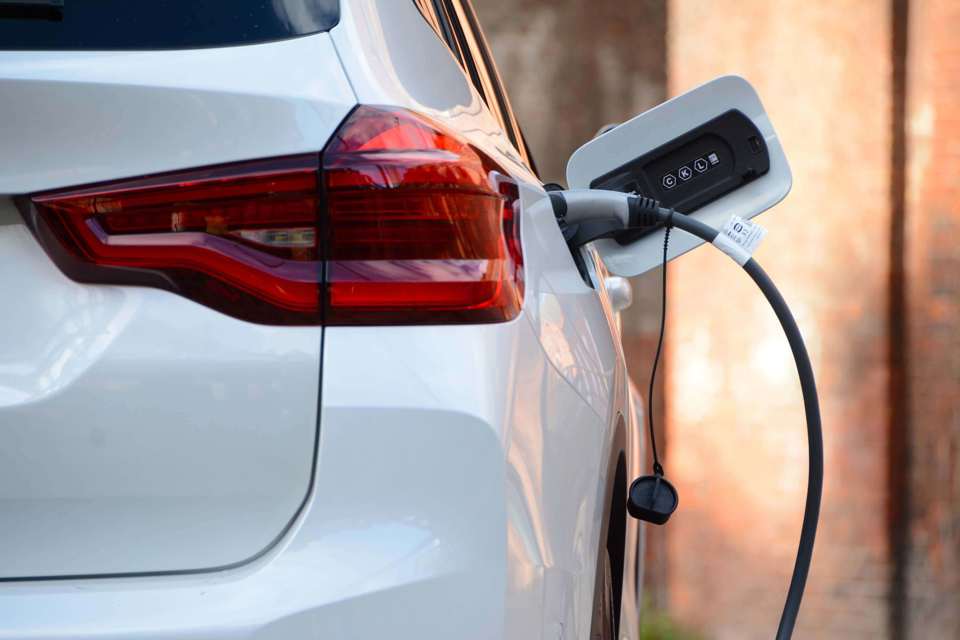The Government has outlined how it will spend £1.6 billion to deliver a network of 300,000 electric vehicle (EV) chargers by 2030, representing a tenfold increase in the current number of publicly available points.
The Department for Transport (DfT) says charging an EV will become “easier and cheaper” than refuelling a petrol or diesel car, as a result of the new plans.
New legal requirements are being introduced for chargepoint operators, mandating that they provide real-time data about chargepoints so EV drivers can compare prices and use apps to find their nearest available chargepoint.
Users must also be able to pay for charging by contactless card and the Government has set a 99% reliability rate for rapid chargepoints.
READ: The Government’s Electric Vehicle Infrastructure Strategy
Transport Secretary Grant Shapps said: “No matter where you live – be that a city centre or rural village, the north, south, east or west of the country – we’re powering up the switch to electric and ensuring no one gets left behind in the process.
“The scale of the climate challenge ahead of us all is well known and decarbonising transport is at the very heart of our agenda.
“That’s why we’re ensuring the country is EV-fit for future generations by the end of this decade, revolutionising our charging network and putting the consumer first.”
£500 million will be invested to bring public chargepoints to communities across the UK. This includes a £450 million Local Electric Vehicle Infrastructure (LEVI) fund, which will fund projects such as EV hubs and on-street charging solutions.
A pilot scheme for the LEVI fund, launching today (March 25), will see local authorities bid for a share of £10 million in funding, allowing selected areas to work with industry and boost public charging opportunities.
Meanwhile, the LEVI funding includes up to £50 million to fund staff to work on local challenges and public chargepoint planning – ensuring that any development complements all other zero emission forms of travel, such as walking and cycling.
Ian Plummer, commercial director of Auto Trader, said: “A ten-fold increase in charging points by 2030 is a noble ambition but whether £500m is enough to deliver the gear-shift on EV charging the country needs remains to be seen. The money will be spread quite thinly.
“The plan puts the onus on councils to develop their own infrastructure, but we would have liked to see central government taking more of a strategic lead. The roll-out has been uneven so far as London and the South-East account for nearly half of all charging points, and the UK lags behind many other European countries.
“Even if today’s ambitions on charging infrastructure are met, the pace is unlikely to keep up with expected growth in EV sales, so we also need this investment urgently to give confidence to those drivers looking to make the switch."
The existing £950 million Rapid Charging Fund will support the rollout of at least 6,000 high powered super-fast chargepoints across England’s motorways by 2035.
Sue Robinson, chief executive of the National Franchised Dealers Association (NFDA), said: "We have repeatedly highlighted that the ability to seamlessly charge an electric vehicle represents one of the key barriers to consumers' uptake of EVs.
"It is encouraging that the Government has committed to increasing the number and improving the quality of chargepoints across the UK.
"An efficient charging infrastructure is vital to boost consumer confidence, drive transport decarbonisation and meet the 2030 deadline.
“We will continue to engage with Government departments to encourage a structured approach to continue to improve the UK charging infrastructure”.
The private sector will continue to play a key role in the rollout of chargers and BP Pulse has announced its own plans to spend £1 billion over the next ten years, tripling its own network of chargepoints in the UK.
Richard Bartlett, senior vice president of BP Pulse, said: “This investment allows us to deliver more. More high-speed charging in dedicated hubs and on existing fuel and convenience sites. More home charging services. And crucial enhancements to our digital technology that will make charging fast, easy and reliable.”
The Society of Motor Manufacturers and Traders (SMMT) is calling on Government to create a new regulator to accelerate the expansion of EV charge points and boost public confidence in the technology.
Mike Hawes, SMMT chief executive, said: “Government has rightly recognised that Britain’s electric mobility revolution must put the needs of the consumer at the heart of the transition. Consumers already have certainty about the vehicles, with ever-increasing choice, thanks to billions of pounds of manufacturer investment, but charging infrastructure must keep pace with the rapid growth of sales of these cars.
“The EV infrastructure strategy points in the right direction, addressing problems with the current customer charging experience and setting out a nationally co-ordinated, locally delivered plan which aims to ‘build ahead of need’. The UK already has an enviable and ever-growing rapid charging network, so focus must be given to expanding public on-street and destination charging provision.
“Every stakeholder will have to play their part in this transition but, if industry and consumers are to have the certainty they need to invest, commensurate and binding targets must be set for infrastructure provision. Deployed nationally and at pace, this expansion would give drivers confidence they will be able to charge as easily as they would refuel, wherever they are.”















Login to comment
Comments
No comments have been made yet.